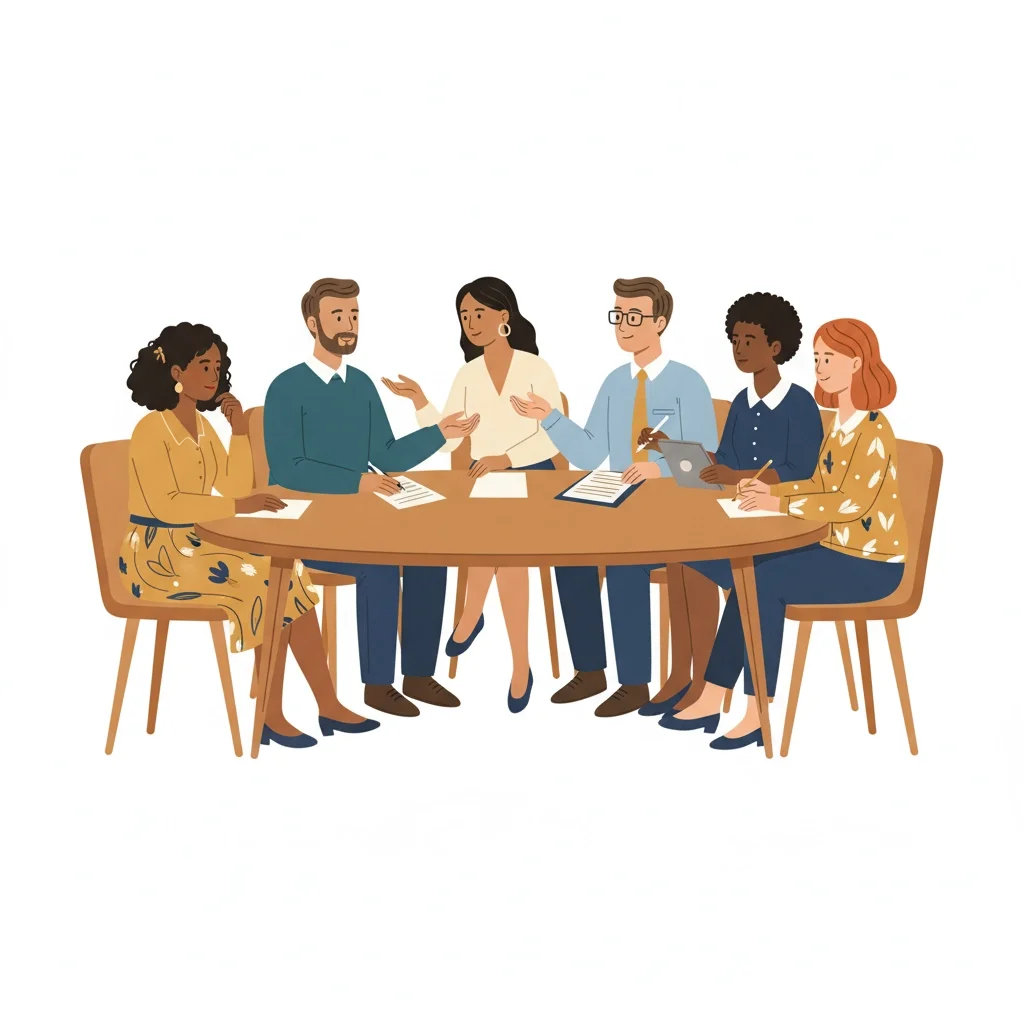
 Rich Gittings
Rich Gittings
Feb 17, 2025

DEI isn't about historic grievances—it's about breaking systemic barriers that hold everyone back. Learn how Diversity, Equity, and Inclusion (DEI) impacts education, the justice system, and economic opportunity for all.
**Inequality isn't just about identity—it's woven into our systems. It shows up in education, healthcare, and access to basic resources. Yes, communities of color, women, and LGBTQ+ folks face barriers, but diversity, equity, and inclusion (DEI) programs don’t stop there.
Rural Americans, low-income families, and people with disabilities all benefit from DEI initiatives. These programs aren’t about historic grievances or giving someone an unfair advantage. DEI is about breaking down the barriers that hold all of us back.
Take Title I funding, for example. It was designed in the 1960s to help low-income schools—many in rural areas hit hard by economic shifts. Here in North Carolina, that meant schools in textile towns like Alamance County and farming communities like Duplin County.
Title I isn’t about dividing people or lowering standards. It’s about leveling the playing field so kids from struggling communities can get a good public education, setting them up to succeed alongside their peers who had more advantages.
Title I is just one example of how DEI works to level the playing field. But the impact of DEI goes far beyond education—it’s about creating a society where everyone has a fair shot.
This isn’t just about policies—it’s about who we are as a society. Do we turn our backs on people who are struggling, or do we come together to make sure everyone has an opportunity to succeed?
Allowing systemic barriers to block someone’s path to success isn’t just unfair—it holds us all back.
Think about it this way:
When you visit a doctor or hire an attorney, you don’t want someone who got the job because the system made it easier for them.
You want the best person—the one who's there because of their skills, hard work, and dedication.
That’s what DEI does. DEI ensures that merit, not the circumstances of one's birth, determines success.
When we invest in diversity, equity, and inclusion, we build stronger, more resilient communities—and that benefits everyone.
Justice is meant to be blind, and the justice system is supposed to be impartial and fair to everyone, regardless of their background. But systemic barriers prevent millions of people from accessing the legal support they need, especially those who don’t qualify for free legal aid, but also can’t afford the high costs of traditional law firms.
At North Carolina Legal Services, we see people fall into this gap every day.
DEI isn’t just about representation—though that is also important—it is about creating a system that works for everyone.
By offering income-based fees and offering payment plans, we help break down financial barriers that often block meaningful to the justice system. But this doesn’t just help our clients—it strengthens the communities that we serve.
Think about it this way:
DEI is challenging—it requires us to rethink how we’ve been doing things, from our courts to our classrooms, for hundreds of years. Of course, there have been and will be mistakes and failures along the way, but that doesn’t mean it’s not worth trying. Building a more equitable society is hard work, but it’s essential for creating a future that works for everyone. And while the people who benefit directly from DEI initiatives see the most immediate impact, we all benefit from the downstream effects—stronger communities, a more robust economy, and a fairer society. Whether you’re from a rural town or an urban neighborhood, whether you’re white, Black, Asian, Latino, or Native American—whether you’re Christian, Jewish, Muslim, or a non-believer—we all deserve the same opportunities.
You deserve to live in a system where you can thrive, where your children have a chance at a good life and success, not because of where you were born, how you worship, who you love, or the color of your skin.
And that’s what we are doing at North Carolina Legal Services—working to make the justice system is actually just.
If you care about these issues but don’t know where to start, that’s okay. You can:
Donate to organizations striving to make a difference.
Volunteer with local organizations supporting equity.
Stay informed about policies that promote fairness.
Engage with community leaders to advocate for equity and inclusion.
Have conversations with friends and family to challenge misconceptions about DEI.
Whatever issue drives you, whether it’s wages, housing, healthcare, or my passion—equitable access to the justice system—there’s a place for you to make your community more fair, inclusive, and just. You don't have to be perfect—I certainly am not—you just have to be willing to give it your best shot. Because, at the end of the day, whether you’re from the Appalachian foothills, the Outer Banks, or the heart of the Triangle, we all have a role to play in building a better, stronger future.
*DISCLAIMER: The purpose of this website is informational - no attorney-client relationship is created by using this website or reading this blog. No legal advice is intended. If you have questions about a current or potential legal problem, you should always contact an attorney directly for specific advice. Results described on this website are meant to describe the work and experience of our Firm. The uncertainty & risk inherent in litigation, as well as the specific individual details of each case mean that results or a particular outcome are never guaranteed. This website is provided "as is," without any warranty of any kind, express or implied.

Trust our friendly team for affordable, comprehensive legal services. Contact us today to resolve your legal issues and gain peace of mind.

